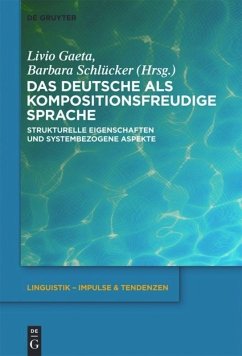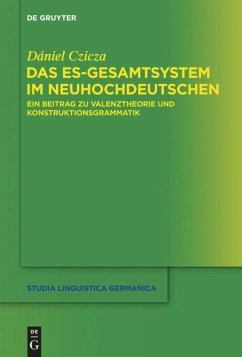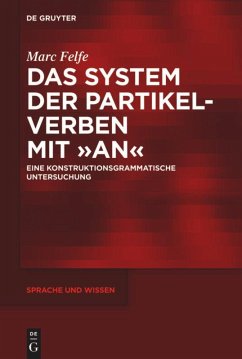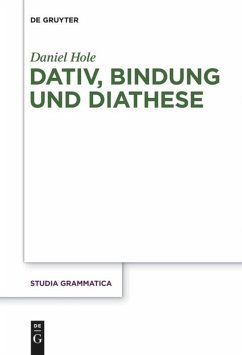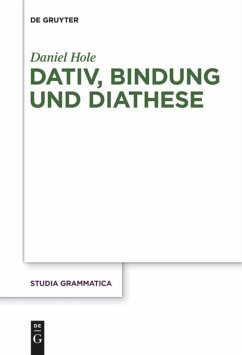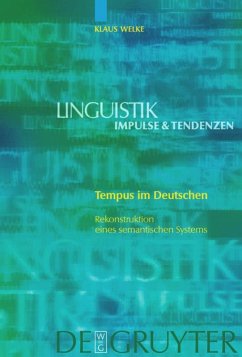
Komposition und Kompositionalität
Möglichkeiten und Grenzen der semantischen Dekodierung von Substantivkomposita

PAYBACK Punkte
0 °P sammeln!
This book systematically applies the so-called principle of compositionality to substantive composition and investigates whether this semantic principle can be judged a sufficient basis for the understanding of unknown terms. The central question concerns how far the meaning of a substantive composite with two nominal elements can be â??calculatedâ?? from the meaning of its constituents. Using various empirical studies, the author shows that the principle of compositionality must be reformulated.
Ziel der vorliegenden Arbeit ist es, das sogenannte Kompositionalitätsprinzip systematisch auf die Substantivkomposition anzuwenden und zu untersuchen, ob das semantische Prinzip als hinreichende Voraussetzung für das Verständnis unbekannter Benennungseinheiten gelten kann. Im Zentrum steht dabei die Frage, inwieweit sich die Bedeutung eines Substantivkompositums mit zwei nominalen Elementen aus den Bedeutungen seiner Konstituenten 'errechnen' lässt und welche semantischen Eigenschaften die Anwendbarkeit des Kompositionalitätsprinzips begünstigen bzw. verhindern.
Anhand verschiedener empirischer Untersuchungen kann gezeigt werden, dass eine Reformulierung des Kompositionalitätsprinzips vorgenommen werden muss, wenn dem semantischen Prinzip ein heuristischer Nutzen bei der Kompositadekodierung zugesprochen werden soll. Das Datenmaterial zeigt darüber hinaus die Notwendigkeit auf, dass die Theorie der Komposition modifiziert werden muss. Nur so kann sie zukünftig auch die Bedeutungen von solchen Komposita erklären, die gängigen Theorien zufolge als 'irregulär' gelten, weil sie beispielsweise über ein umgekehrtes Determinationsverhältnis verfügen oder weil in ihnen Negation elliptifiziert wird.
Anhand verschiedener empirischer Untersuchungen kann gezeigt werden, dass eine Reformulierung des Kompositionalitätsprinzips vorgenommen werden muss, wenn dem semantischen Prinzip ein heuristischer Nutzen bei der Kompositadekodierung zugesprochen werden soll. Das Datenmaterial zeigt darüber hinaus die Notwendigkeit auf, dass die Theorie der Komposition modifiziert werden muss. Nur so kann sie zukünftig auch die Bedeutungen von solchen Komposita erklären, die gängigen Theorien zufolge als 'irregulär' gelten, weil sie beispielsweise über ein umgekehrtes Determinationsverhältnis verfügen oder weil in ihnen Negation elliptifiziert wird.





